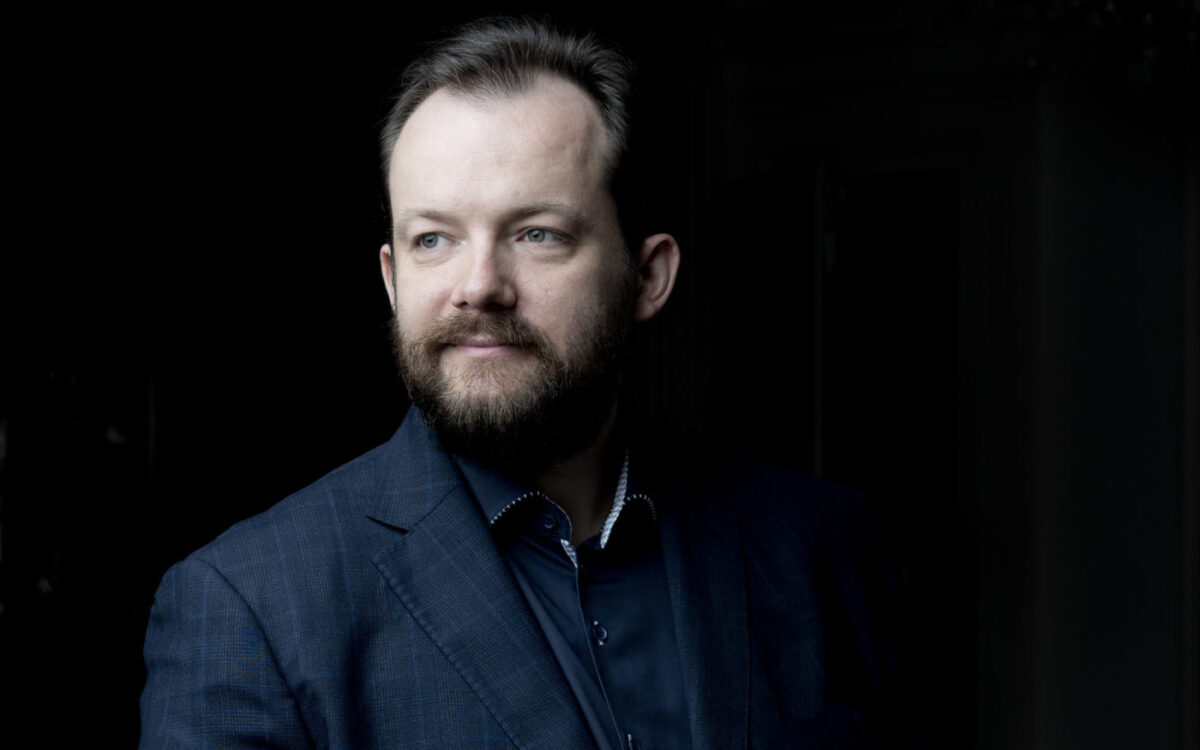Opening Prayer
Composition and premiere: December 15, 1986, Leonard Bernstein leading the New York Philharmonic and baritone Kurt Ollmann at Carnegie Hall, New York City. In the only previous Boston Symphony Orchestra performance of the piece, members of the BSO joined forces with the Tanglewood Music Center Orchestra and baritone Sherrill Milnes under conductor Seiji Ozawa as part of the inaugural concert for the opening of Seiji Ozawa Hall on July 7, 1994. Opening Prayer has since been performed three times at Tanglewood, all by the TMCO, including once in the Shed, led by Robert Spano and featuring baritone Roberto Servile, for the Leonard Bernstein Memorial Concert on July 15, 2000. Yu-An Chang led the most recent Tanglewood performance with the TMCO in Ozawa Hall on July 9, 2018.
No former Tanglewood student has had so signal an influence on the place as Leonard Bernstein, who arrived here in 1940 as a member of the very first class of what was then called the Berkshire Music Center and who returned—as student, assistant to Serge Koussevitzky, conductor, composer, and teacher—virtually every summer for the remainder of his life. As America’s musical icon, Bernstein regularly focused the attention of the artistic world on this place. His 70th birthday celebrations here included four days of astonishing events, some of which were carried by live television to Europe. And it was at two Tanglewood concerts in August 1990—with the Tanglewood Music Center Orchestra and the Boston Symphony Orchestra—that Bernstein conducted for the last time, appropriately ending his career at the place where, for all practical purposes, it had begun. In 2018 the BSO and a large roster of special guests including John Williams, Midori, and Michael Tilson Thomas presented a Bernstein Centennial Celebration at Tanglewood to highlight the great musician’s outsized impact on American music generally and on Tanglewood especially.
Bernstein wrote Opening Prayer for a gala concert celebrating the reopening of the main auditorium of Carnegie Hall on December 15, 1986. The composer led the New York Philharmonic and baritone Kurt Ollmann in the first performance. A solemn, rugged, brass-centered orchestral introduction is followed by a lovely, songlike melody given primarily to the oboe. This expansive tune is taken over by strings in counterpoint. The solo baritone only appears for the last minute or so, singing a benediction in Hebrew from the Old Testament, Numbers 6:24-36:
The Lord bless thee, and keep thee:
The Lord make his face shine upon thee, and be gracious unto thee:
The Lord lift up his countenance upon thee, and give thee peace.
Bernstein, already an up-and-coming conductor and composer, had seen his stock rise considerably when he made his debut with the New York Philharmonic at Carnegie Hall in 1943 in relief of an ailing Bruno Walter. In an introduction to a filmed performance of the premiere of Opening Prayer, the violinist Isaac Stern—who spearheaded efforts to save Carnegie Hall from destruction in the 1960s—related that Bernstein recalled whispering the benediction to himself as he strode onstage for that auspicious debut.
The basis of Opening Prayer is a two-minute piano piece, “For Aaron Stern” (a musician and educator with whom Bernstein worked in the 1980s), one of the solo piano Thirteen Anniversaries eventually compiled in 1988. Bernstein used this as the kernel of the six-minute baritone-and-orchestra work, which also became the second movement, renamed “Benediction,” of his Jubilee Games, a two-movement work written for the 50th anniversary of the Israel Philharmonic in 1986 and expanded to become the composer’s four-movement Concerto for Orchestra, which was premiered by the Israel Philharmonic under the composer’s direction in April 1989.
Steven Ledbetter/Robert Kirzinger


